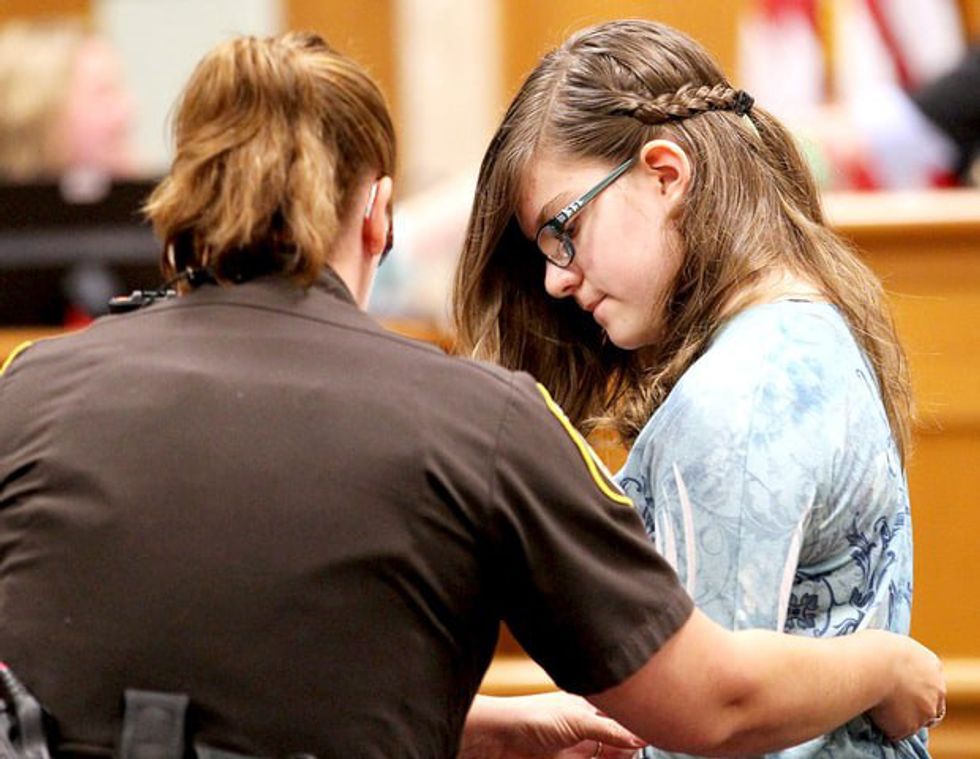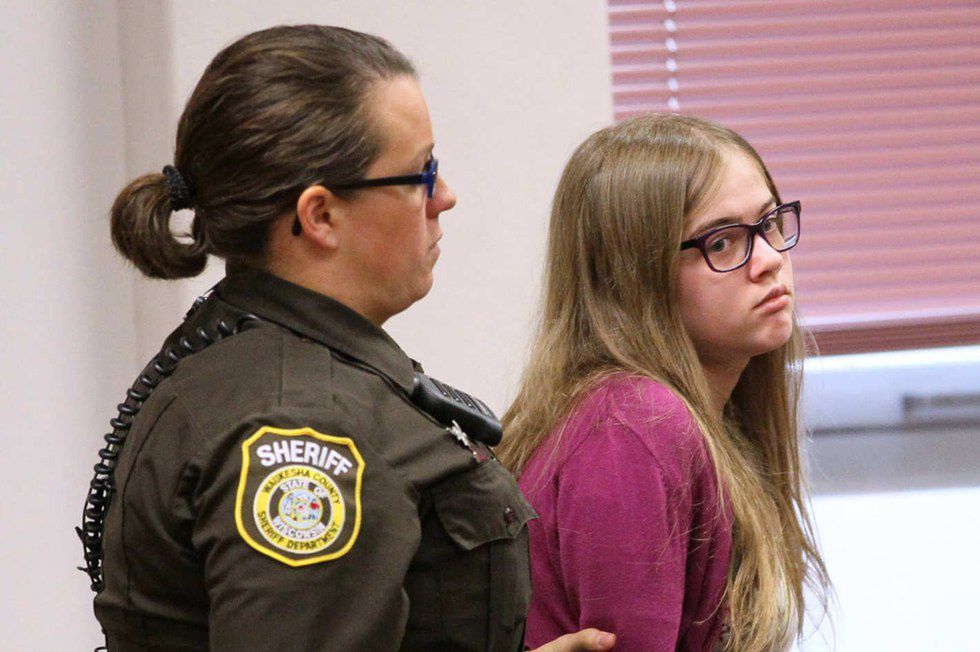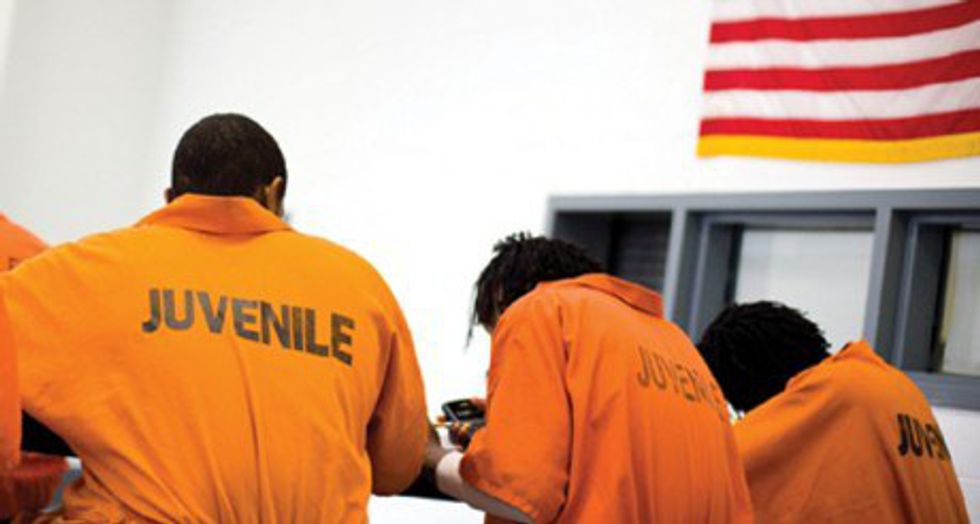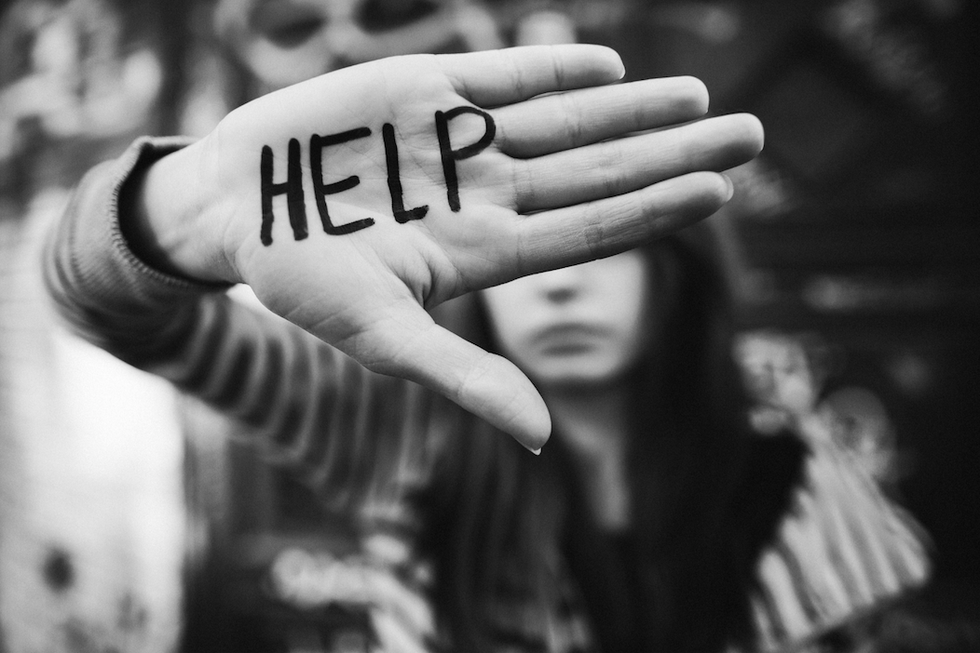Recently, I came across an article from Rolling Stone Magazine entitled "Slender Man Trial: Why Trying These Girls as Adults Is Absurd." Essentially, a duo of 12-year-old girls in Wisconsin stabbed their friend as to appease "Slender Man," an internet meme. The defense of these cases is stating that these girls were both immature and potentially mentally ill at the time of the attack.
Though the young girl who was stabbed was able to survive the attack, the family is obviously suing the girls. They are currently both on trial, even though the attack occurred in 2014. The shocking news? These two young girls, now 14 years old, are going to be sentenced as adults instead of juveniles. This begs the questions, at what point should the court allow for juveniles to be tried in court as adults instead of minors?
As a criminal justice and psychology major I found the topic fascinating. Especially since I'm interested in working with underprivileged and juvenile minors when I graduate.
There is so much to take into consideration when it comes to a juvenile offender, but even more when they commit an adult crime. If a child commits murder, should the court try them as an adult? Should age be taken into consideration? Should there be an option to sentence a child to life in prison without parole? What if the child was coerced, persuaded or forced by another party to commit the adult crime? Should mental stability, maturity and intent be taken into account more in the case of a child compared to an adult?
Rolling Stone Magazine spoke of the mental state of these young girls when this attack took place two years ago, "In this case, the record suggests that, due to mental illness, the girls had significantly less control of their actions than the average preteen. Morgan Geyser, who wielded the knife, has since been diagnosed with early-onset schizophrenia.
Most people with schizophrenia are not violent, but an undiagnosed Geyser believed she would be able to live at Slender Man's mansion if she killed her friend, and that he'd harm her family if she didn't go through with it. Experts diagnosed her partner in crime, Anissa Weier, with a delusional disorder and schizotypy, essentially "a diminished ability to determine what is real and what is not real."
After the two stabbed their friend, they set off to find Slender Man in a forest 300 miles away – on foot. Mental health professionals testified that Geyser still believes Slender Man is real."
Fourteen states have no minimum age for trying children as adults. Children as young as eight have been prosecuted as adults in some states. There have been many cases where young children are tried and sentenced to life and prison without the possibility of parole. This could mean that these children, making a mistake so terrible at such a young age in their life, will be spending almost their entire lives behind bars.
Searching the internet quickly, it didn't take me long to find dozens of different arguments on the question of minors being tried as adults. Both sides have strong, opinionated arguments on the touchy subject. Research has shown that juvenile prisoners are more likely to commit or attempt suicide when behind bars compared to adults. Children are also much more impressionable than adults are. Isn't it tragic to send a young, impressionable child with their entire life ahead of them to prison for the rest of their lives without a single possibility of them being able to leave?
There really is not a completely right way to go about arresting a minor and punishing them for an adult crime as violent as murder, manslaughter or assault. Letting them off easy may be damaging to their future, as the child may believe they will continue to be able to get away with such events into their adulthood.
At the same time, will putting them in prison for life without parole actually do more harm than good? Will sentencing fourteen-year-old girls, who may have been mentally ill at the time of the crime, to time in prison do any good? Or will it just be harming their self-esteem, livelihoods, and future?
Link to the original Rolling Stones article: http://www.rollingstone.com/culture/features/slend...

























